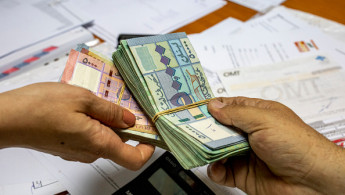World Bank warns Lebanon's tanking economy increasingly cash-based
The World Bank has warned that nearly half of crisis-hit Lebanon's economy is now cash-based as trust in banks has plummeted, heightening money laundering risks and slashing hopes for recovery.
Lebanon has been mired since 2019 in an economic crisis that the World Bank has dubbed one of the worst in modern history, as the currency's market value has fallen by at least 98 per cent against the dollar.
As a result, the cash economy has nearly doubled in size from 26.2 per cent of gross domestic product in 2021 to nearly half of GDP last year, the Washington-based body said in a report Tuesday.
"A pervasive and growing dollarised cash economy is a major impediment to Lebanon's economic recovery," the report warned.
The trend has adverse implications on "fiscal and monetary policy, significantly heightens the risks of money laundering, increases informality and facilitates tax evasion", it added.
The World Bank estimated Lebanon's cash economy to be at around $9.9 billion, or 45.7 percent of GDP in 2022.
"Cash economies make it easier to conceal the source of funds for illicit and illegal activities," it added.
Lebanon's currency plunge has driven price hikes including on fuel, food and other basic goods, with supermarkets pricing items in dollars and many private employers paying salaries in cash.
Banks have imposed draconian withdrawal restrictions, essentially locking depositors out of their life savings and prompting them to back away from a collapsing banking sector.
"A cash economy has come to gradually replace the banking sector," the report said, adding that "the root cause of a pervasive cash economy is the loss of confidence in the insolvent banking sector".
"An increasing reliance on cash transactions threatens to completely reverse the progress that Lebanon made towards enhancing its financial integrity... before the current crisis," the report said.
Despite the gravity of the crisis, Lebanon's political elite, which has been widely blamed for the financial collapse, has failed to take action.
Since last year, Lebanon has had no president and only a caretaker government, amid persistent deadlock between rival factions.
A French judge probing central bank chief Riad Salameh's wealth in Europe on Tuesday issued an international arrest warrant for him, a source close to the case had told AFP.





 Follow the Middle East's top stories in English at The New Arab on Google News
Follow the Middle East's top stories in English at The New Arab on Google News


